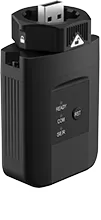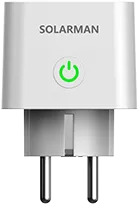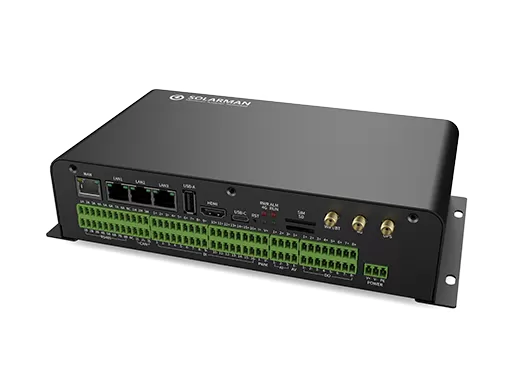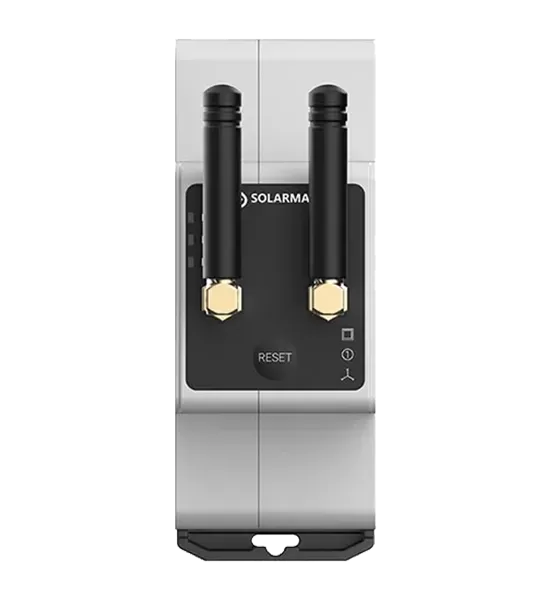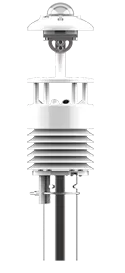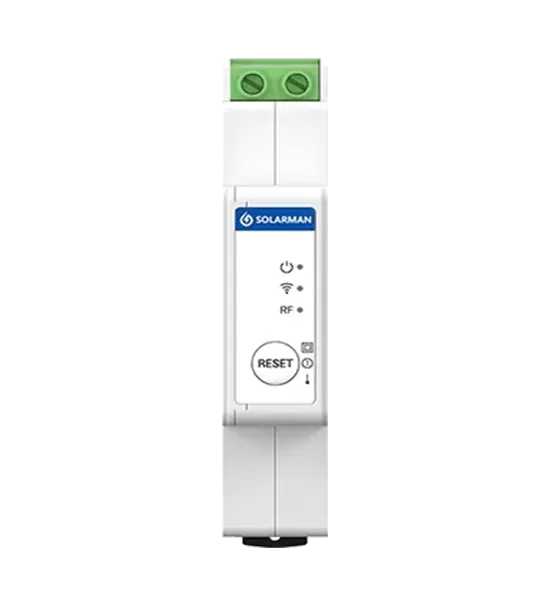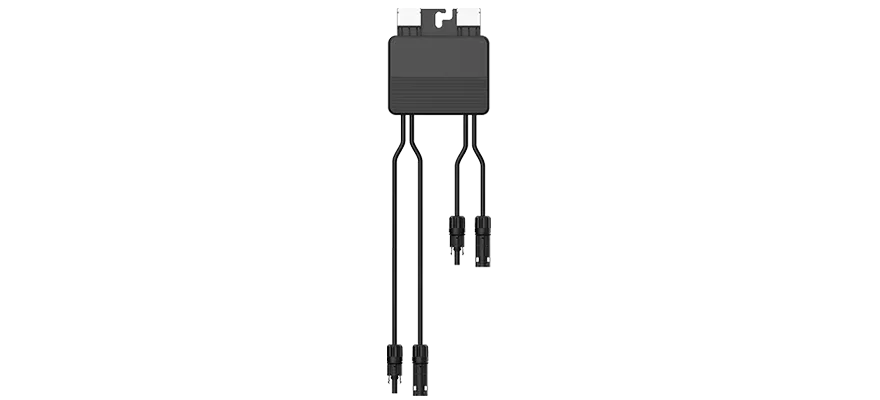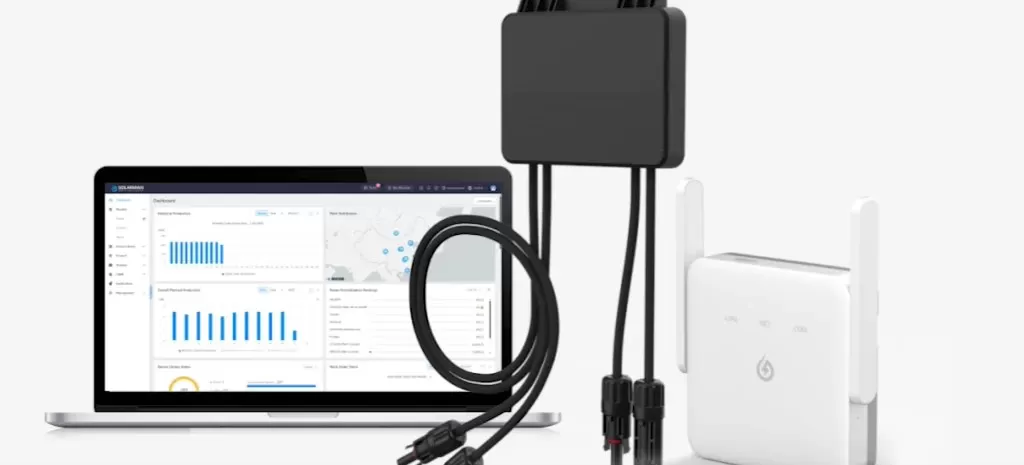In today’s energy-conscious world, smart energy meters are the gateway to real-time energy insights and cost-saving opportunities. These smart metering products track power consumption, support renewable energy inputs, and empower homeowners, businesses, and facility managers with actionable data.
What is a smart meter and what does it do? A smart meter is an advanced electronic device designed to measure and report electricity usage in real time. Unlike traditional meters, smart meters feature live data transmission, bidirectional metering (especially important for solar-equipped systems), compact designs, and robust connectivity options. They serve as the primary data collectors for homes, apartments, EV charging stations, industrial sites, and smart buildings.
Key Features of SOLARMAN Smart Meter
High Measurement Accuracy: Compliant with IEC Class 1 for active power and Class 2 for reactive power.
Compact & Easy Installation: DIN-rail design with open CT sensors simplifies deployment.
Bidirectional Metering: Tracks both power consumption and generation—perfect for solar PV and net metering systems.
Multiple Communication Options: Choose from Wi‑Fi (b/g/n/ax), LoRa (868 MHz), Ethernet, or Bluetooth for localized connectivity.
Real-Time Data Uploads: Reports usage and fault conditions in milliseconds with configurable upload intervals.
Local API Support: Enables integration with Home Energy Management Systems (HEMS) for automation & optimization.
Security Standards Compliance: Built to meet EN 18031 IoT security standards.
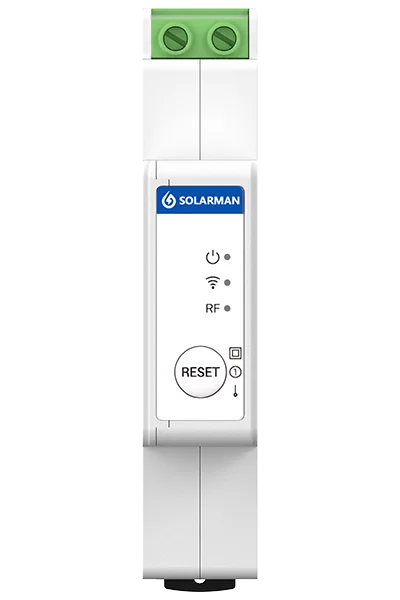
Smart Meters vs Regular Meters
| Feature | Regular Meter | Smart Energy Meter |
| Real-Time Insights | × | √ |
| Smartphone/Cloud Access | × | √ |
| Renewable Integration | × | √
(Solar, EV, etc.) |
| Remote Fault Detection | × | √ |
| Bidirectional Metering | × | √ |
How Smart Meters Reduce Energy Waste?
Smart meters play a crucial role in transforming how individuals and businesses consume electricity. Unlike traditional meters that only provide a monthly summary of usage, smart meters offer real-time visibility into energy consumption patterns. This constant stream of data allows users to see exactly how much energy is being used at any given moment, helping them identify inefficiencies and make immediate adjustments. For example, by noticing unexpected power spikes, a homeowner may discover that certain appliances are drawing excessive energy, even when not in use.
Beyond simply showing consumption, smart meters also integrate seamlessly with smart home systems and automation platforms. This integration allows users to schedule energy-intensive appliances to operate during off-peak hours or when solar generation is at its highest. As a result, users can optimize both their energy usage and their energy costs, reducing reliance on the grid during high-demand periods and making better use of self-generated power.
Additionally, smart meters contribute to proactive energy management. With built-in alert functions and access to historical data trends, users can spot unusual activity—such as a malfunctioning device or a sudden drop in solar output—and address problems before they lead to larger energy losses. This kind of early detection is especially valuable in larger buildings or commercial facilities where unnoticed inefficiencies can lead to significant waste over time.
Smart Energy Meter Use Cases
Residential: Track immediate power usage, manage EV charging, and check home solar performance.
Commercial & Industrial: Monitor machinery, HVAC, lighting systems, and manage microgrid setups.
Shared Spaces & EV Stations: Allocate energy usage per apartment, billing, or customer session.
Smart Buildings: Integrate with BMS for automating load balancing, detecting inefficiencies, and managing peak demand.
How to Choose the Right Smart Power Consumption Meter?
Electrical Configuration: Single‑phase vs. three‑phase—choose models like SOLARMAN MR1-D5-WR single-phase or MR3-D4-WRE three-phase.
Communication Needs: Smart energy meter WiFi or LoRa for home use; Ethernet for high-reliability setups.
Monitoring Requirements: Ensure real-time energy monitoring system and bidirectional metering are supported.
Integration Capability: Local API support is essential for HEMS or smart gateway compatibility.
Installation Ease: Look for DIN-rail mounting and open-type CTs for tool-free setup.
Security Compliance: Verify certifications like EN 18031 for safe deployment.
In essence, smart meters empower users to be more aware, more responsive, and more efficient with their energy consumption. By turning passive energy use into an actively managed system, they help reduce unnecessary waste, support sustainability goals, and enable smarter living and working environments. Smart energy meters are at the heart of modern, efficient energy systems. With features like bidirectional tracking, real-time data, and powerful connectivity, these meters offer unmatched control over power use—whether in homes, commercial spaces, or solar installations.
The SOLARMAN Smart Meter lineup exemplifies this innovation, highly accurate, versatile, and easy to deploy. If you’re ready to upgrade to smart energy monitoring, reduce costs, and embrace the future of energy, smart meters are the essential first step.
FAQs of Smart Energy Meter
What can I monitor with a smart energy meter?
Smart meters monitor real-time electricity consumption, voltage, current, power factor, and sometimes grid feed-in or solar generation. They provide insights into how, when, and where energy is being used across your home or facility.
Do I need Wi-Fi or internet for a smart power consumption meter to work?
Most smart meters use Wi-Fi, Ethernet, or wireless protocols like LoRa to communicate data to a cloud platform. While some features like local monitoring or automation may still work offline, full functionality — including remote access — typically requires an internet connection.
Can a smart energy meter work with solar systems?
Yes. Many smart meters, especially bidirectional ones, are designed to work with solar PV systems. They measure both the power consumed from the grid and the power generated or fed back into it. This is essential for tracking self-consumption, net metering, and maximizing solar efficiency.
Is smart meter installation difficult?
Installation depends on the model and use case. Most residential smart meters are designed for easy installation. For accurate setup, especially in three-phase systems or commercial settings, it’s recommended to hire a licensed electrician or installer.
Is the smart meter safe and secure?
Yes, reputable solar power meters comply with industry standards for safety and cybersecurity. For example, the SOLARMAN Smart Meter complies with EN 18031 IoT security standards and supports encrypted data transmission for safe integration with energy management platforms.
 EN
EN




